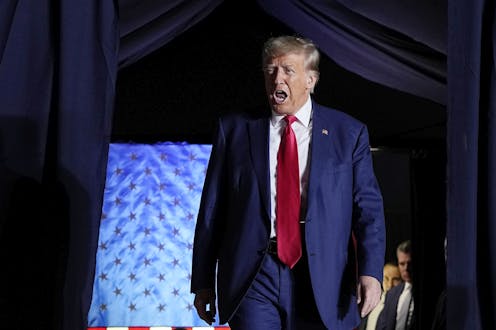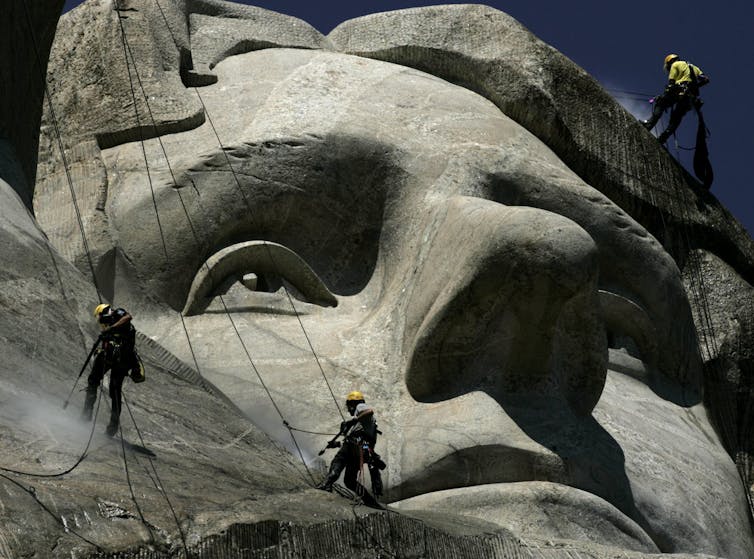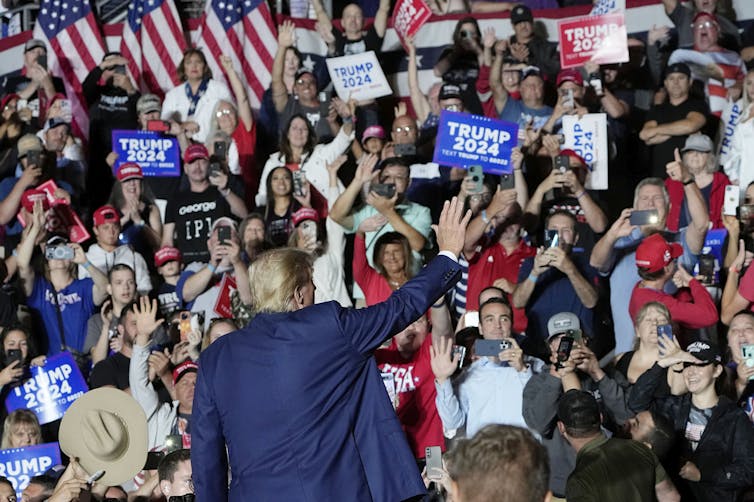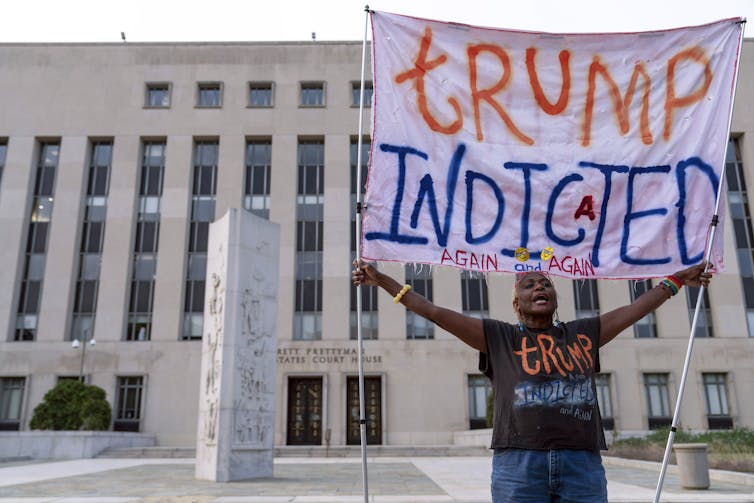
The indictment of former United States president Donald Trump on charges he tried to overturn the results of the 2020 presidential election is the most serious test of America’s experiment in constitutional government since December 1860, when the state of South Carolina seceded from the Union and set in motion the events leading to the Civil War.
Before reflecting on the stakes of this crisis, however, we should consider its deeper roots.
How could a defeated president refuse to accept the results of an historically secure election, sic a violent mob on the U.S. Capitol and still command the unshakeable loyalty of one third of Americans?
How could this same person appeal to another sixth or so of voters, putting him in position to return to power in 2024 as the Republican front-runner?
Chosen people
As a historian who tries to take the long view of current events, I see one underlying explanation that reaches back — strange as it may seem — to a single passage from a book published in Paris 238 years ago.
“Those who labour in the earth are the chosen people of God.” So proclaimed Thomas Jefferson in 1785 in his Notes on the State of Virginia, which he had originally written as a series of letters for a French visitor.
Jefferson’s words were more than hot air. After becoming president in 1801, he used the power of the federal government to vastly expand the public domain of the United States and to survey, divide and sell that domain to as many white farmers as possible.

In the words of one historian, the early U.S. was a “settlers’ empire,” a political and military force with the main goal to provide farm families (and speculators) with more land.
So it went for generations.
With minor changes and variations, parties and presidents flattered and favoured the rural majorities of America. American culture identified farm folk and small towns as the most authentic and virtuous parts of the nation — or, as President Andrew Jackson put it in 1837, “the bone and sinew of the country.”
Those people, in turn, came to believe that they, not the Crown or Congress, not the government or the constitution, were in charge.
This continued after the Civil War destroyed slavery in the 1860s and after America became a majority urban society in the 1920s. Only with the cultural and social revolutions of the 1960s and 1970s have the heirs of Jefferson’s “chosen people” lost their status as the most American of Americans.
White, straight, Christian
At its best, the more diverse culture that has emerged over the past half century holds that all Americans are equally American. At its worst, that culture disdains the “fly-over states” as rustic, racist backwaters.
Either way, the new, diverse America enrages tens of millions of people who predominantly live in small towns and in the South and mostly identify as white, straight and Christian.
New Yorker though he is, Trump understands and stokes that rage. He plays with its dark energies. He tells the MAGA faithful that they alone are what made America great and that he alone can restore them to greatness.

This is why Trump has such an electric hold over so many of my fellow citizens.
And now that he’s facing multiple indictments, Trump is calling on them to reject not only the constitutional order of the United States but also their two pillars — the rule of law and the rule of facts.
As he told the faithful at the annual Conservative Political Action Committee in March: “I am your warrior. I am your justice. And for those who have been wronged and betrayed: I am your retribution.”
Decision 2024
The most recent charges show beyond a shadow of a doubt that Trump kept repeating — and acting upon — claims about the election that even his closest advisers characterized as “just conspiracy shit beamed down from the mothership.”
Whether Trump himself knew these claims to be false is not as clear, and the special counsel in the case, Jack Smith, will have to show as much to establish the former president’s criminality.
But as American journalist Zackk Beauchamp points out, the indictments prove that Trump is either “an extraordinarily selfish liar or profoundly deluded.”

Trump will admit to neither, of course. He’s already called the indictments “fake,” while one of his most zealous followers in U.S. congress, Marjorie Taylor Greene of rural Georgia, insists the charges are “a communist attack” on the First Amendment and “the people.”
In MAGA world, if a federal agency says that Trump violated the law or told a lie, that can only mean that the agency is part of the plot against the people — a target of Trump’s promised retribution.
Sometime between his arraignment this week and election day next November, America will therefore have to choose between the rule of law and fact, on one hand, or with the rule of the chosen people and their leader, on the other.
Jason Opal receives funding from the Social Sciences and Humanities Research Council of Canada.
This article was originally published on The Conversation. Read the original article.







